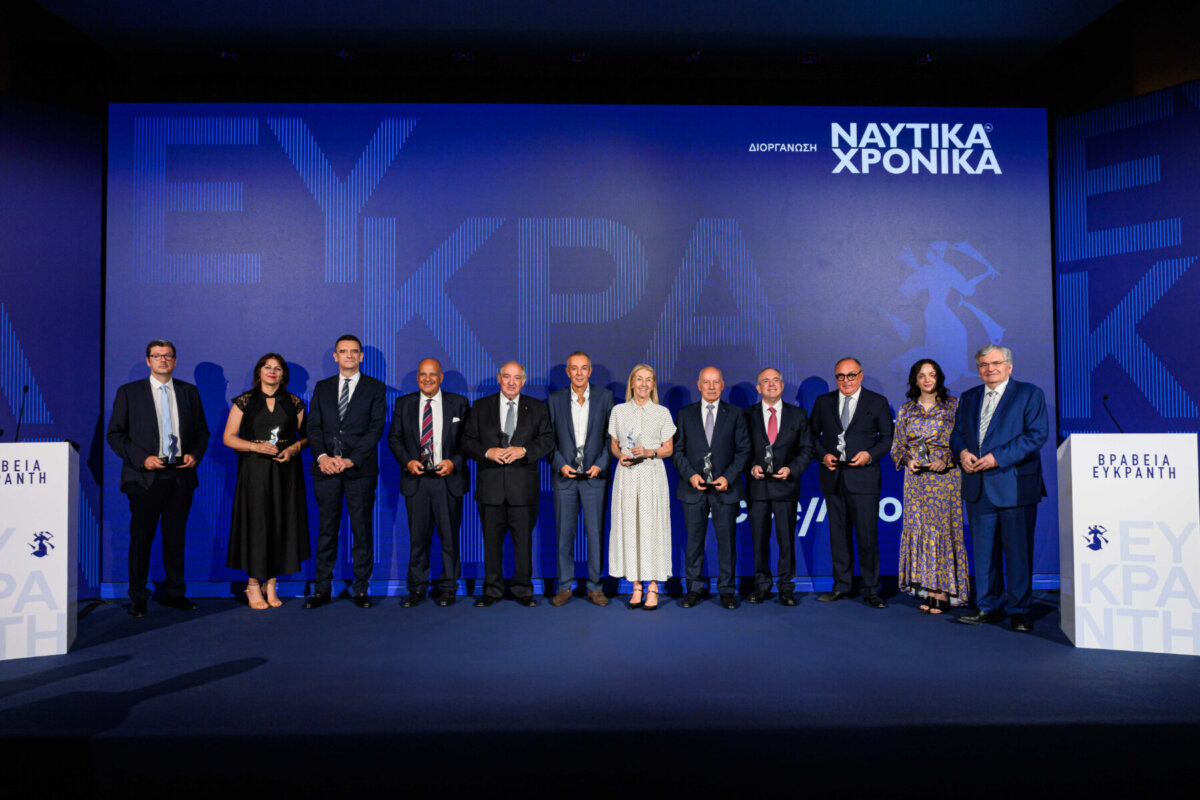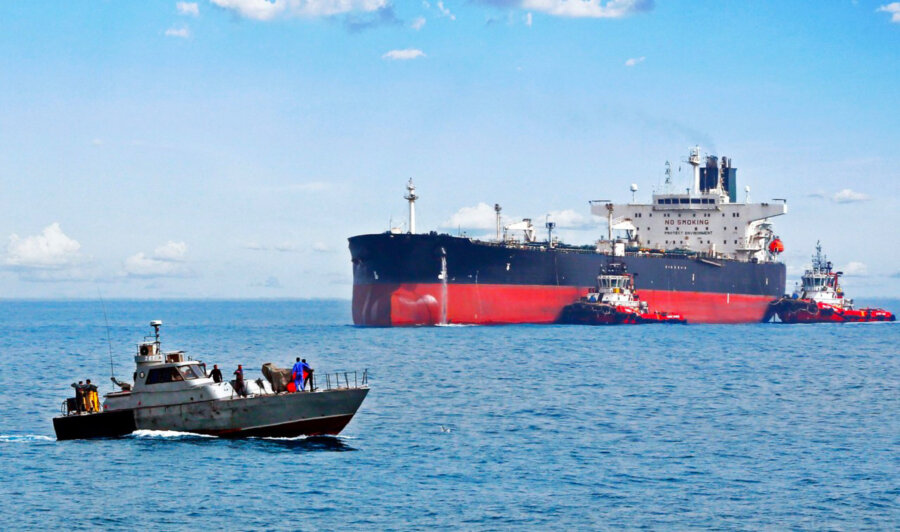
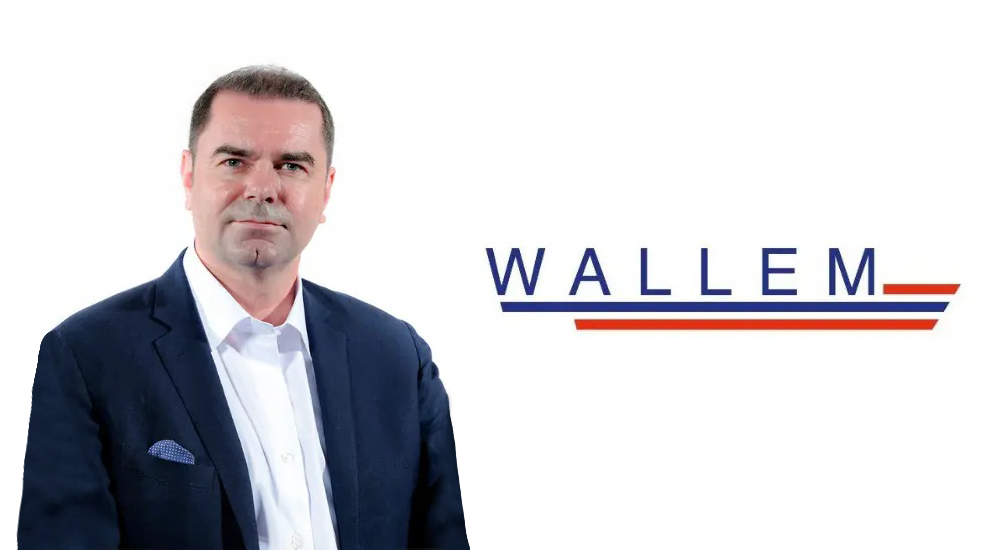
Attracting talent to the shipping industry is crucial
During the Posidonia exhibition, which was organised from 6 to 10 June, we had the chance to talk with Mr. John-Kaare Aune, CEO at Wallem, who provided insight regarding the role of third party management in the future of the shipping industry but also pointed at some crucial challenges the industry will face.
What will be the most crucial changes in crewing the ship of the future?
As it plots its future course, the shipping industry will experience – is already experiencing – profound changes. Whether they have to do with the means of propulsion, other technological breakthroughs, a vessel’s operational efficiency, optimization, or real-time data, there will be changes in the qualities needed the most on board a vessel. Based on that, there must be a change in the crewing mentality and skills that seafarers will need to adapt to the future.
Creating an appropriate team to crew a vessel will demand specific experience and knowledge, in the right combination, to bring together people with various strengths. Even if a future where autonomous shipping becomes to some extent a reality, there will always be a need for the human element. It will be possible to automate many parts of a vessel’s operation; however, there will always be a need to assess the enormous amount of data – something only experienced and capable seafarers can do.
As for the number of seafarers on board, even if it is reduced, there will be the need for a more specialized crew. At the same time, there will come a turning point when a shipping company might have both vessels of newer technological characteristics and older ones. Thus, each kind of vessel will require different crewing. Both crew categories will co-exist at some point.
Whatever the future challenges, shipping will adapt, taking advantage of various collaborations to achieve the desired outcome.
Will third-party ship management flourish among the Greek shipping houses? In which shipping sectors does Wallem believe there will be more collaboration opportunities?
Wallem is optimistic concerning the future of third-party ship management in Greece since it can provide value, especially to small and medium-sized shipping companies. To adapt and achieve new heights in the years to come, collaborations within the shipping industry will be a must. Collaborations do not necessarily mean the complete outsourcing of vessel management; they can also be on a smaller scale.
As for specific sectors, all of them provide ample opportunities for collaboration, but an example could be the tanker sector. In the tanker market, entering into a charter contract with an oil major can be challenging for a smaller shipping company due to the many requirements indicatively, training. In this instance, Wallem can step in with its expertise and training sessions – adapted to oil majors’ requirements – to help smaller shipping companies train their seafarers.
Wallem believes a hybrid management model will be dominant in the future. Medium-sized companies will still be in control of their fleets and, at the same time, will tap into specific third-party management tools to benefit to a greater extent. A part of the fleet management could be outsourced to a third-party ship management company, while the rest of the fleet could still be managed in-house so that the company retains its operational expertise.
Wallem can also offer increased value to shipping companies implementing newer technologies aboard their vessels. All in all, there are many great opportunities for collaboration. Our company is keen on offering its services to benefit itself and its customers.
How can a third-party ship management company embrace the changes in the technological landscape to benefit its clients?
Wallem does not only thrive in third-party ship management. We already have many clients we collaborate with on newer technologies and maritime digitalization, although we do not manage their vessels. That is to say, we are a leading provider of technology-driven maritime solutions.
We help companies understand what they can achieve through the available data and how to cope with challenges and achieve targets given the shipping industry’s ever-changing environment.
Our company also offers clients access to any platforms we use and assist in evaluating all the available data. Data availability has been increasing exponentially. While this is desirable as it provides information companies can use to improve their operations, its sheer volume can prove difficult to manage. Wallem can help shipping companies assess data, keeping their essential and useful parts.
What characteristics differentiate Greeks from other shipowners? What is the profile of Greek shipping?
Greek shipowners are experts when it comes to vessel operational management. That is one of their distinctive characteristics, which is very helpful when collaborating with Greek shipping companies as there is no need to explain basic aspects of operational management.
Greece has a long shipping history, so it already has a reference framework built through decades of experience. Wallem is also proud of its 120-year history in ship management and believes in its own significant strengths.
Given the imminent changes in the shipping landscape, what advice would Wallem give shipowners regarding their investment strategies?
Due to the uncertainty clouding the shipping industry’s future, it is quite difficult to recommend a specific strategy to owners. As there is no clear-cut solution, different owners pursue different paths when making decisions. However, Wallem can help shipowners pursue the strategy they deem appropriate -this is precisely the strength of partnerships. We can offer advice based on whatever the shipowners choose.
The two main investment strategies currently are to wait for the future fuel mix to be determined or to opt for dual-fuel vessels. Both are viable but ultimately depend on specific parameters, such as whether you have outstanding long-term contracts with charterers clearly specifying the transported commodity and trade route or ensuring a vessel is chartered for an extended period. If the answer is yes, investing amid the current uncertainty is possible.
What is your view on the crew shortages expected in the future? Will they also affect Greek shipping despite its long history of producing seafarers? How can the shipping industry cope with this emerging challenge?
The shipping industry needs to increase its pool of seafarers. Women can become a decisive force; if we include them to a greater extent, it will make a difference. Other than that, attracting talent to the shipping industry is crucial, although it has been getting harder due to the increasing competition from shore-based employment.
On the other hand, state support is and will be fundamental. We are beyond the point where shipping companies took measures to attract talent on their own. Governments also need to take steps in this direction.
Will Wallem be establishing an office in Greece? What is Wallem’s view on the prospects of Piraeus/Athens as a shipping metropolis?
Athens is undoubtedly one of the world’s leading maritime centers: there is vast expertise and a solid legal framework. When the right business opportunity presents itself, Wallem will take this step.
ΝΧ
Συντακτική ομάδα Ναυτικών Χρονικών

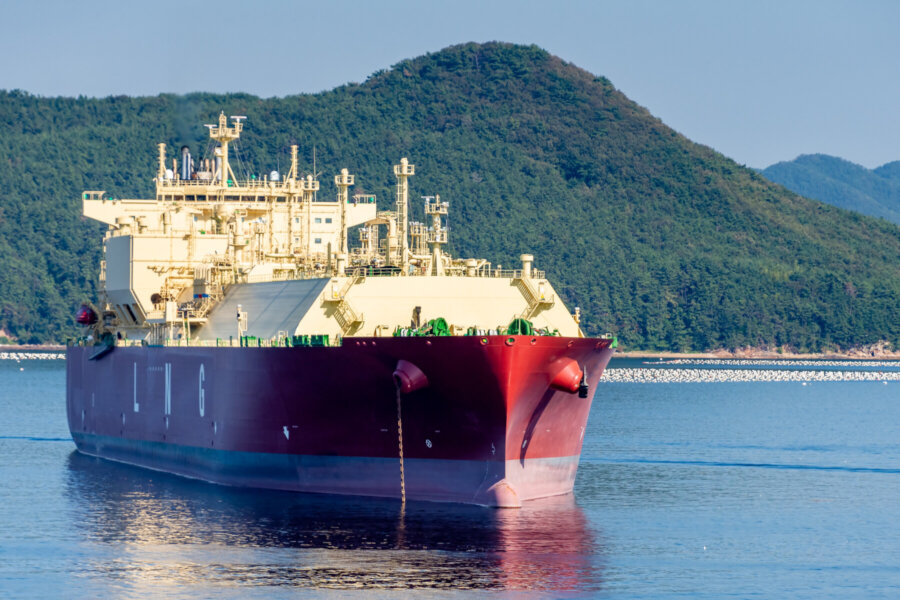
Σταθερά νωχελική η ναυλαγορά των LNG carriers
Σε χαμηλά επίπεδα εξακολουθούν να κυμαίνονται οι ναύλοι των LNG carriers, με την προηγούμενη εβδομάδα να ολοκληρώνεται με τάσεις σταθερότητας. Ειδικότερα, βάσει πρόσφατης έκθεσης…
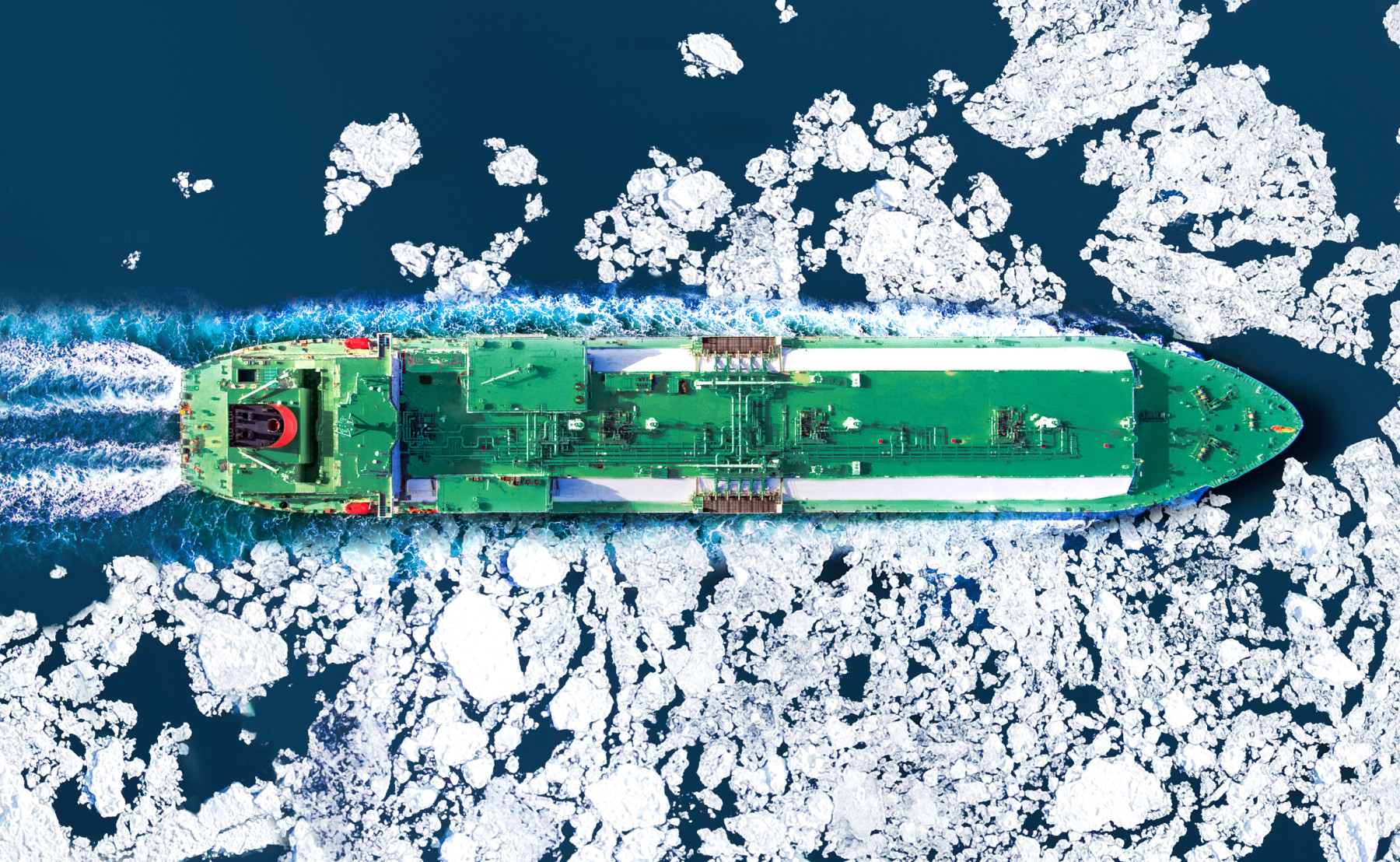
Εκ νέου απόπειρα της Ρωσίας για επανεκκίνηση των εξαγωγών από το Arctic LNG 2
Καθώς οι δυτικές κυρώσεις έχουν παραλύσει τις εξαγωγές ρωσικού LNG από το έργο «Arctic LNG 2», η Μόσχα επιχειρεί μια νέα προσπάθεια επανεκκίνησης των εξαγωγικών…

Τα κύματα καύσωνα, απειλή για το ΑΕΠ της Ευρώπης
Τα κύματα καύσωνα, που πλήττουν την Ευρώπη, μπορεί να επιβραδύνουν την οικονομική ανάπτυξη στη Γηραιά Ήπειρο κατά μισή ποσοστιαία μονάδα, σύμφωνα με έκθεση της…
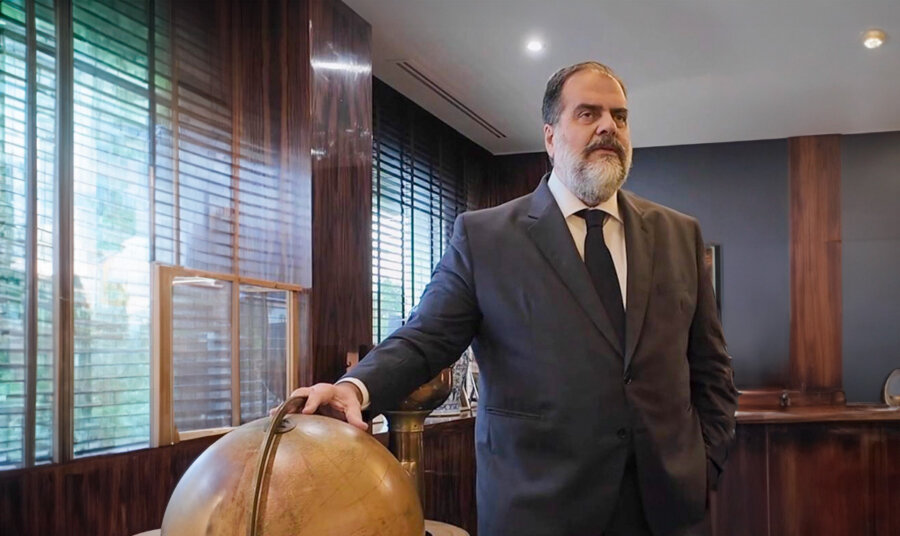
Νικόλας Δ. Πατέρας: Όραμα, όνειρο και καλοί συνεργάτες είναι τα εχέγγυα επιτυχίας για κάθε εταιρεία και οργανισμό
Συνέντευξη του Νικόλα Δ. Πατέρα, Προέδρου και CEO της Contships Management Inc.
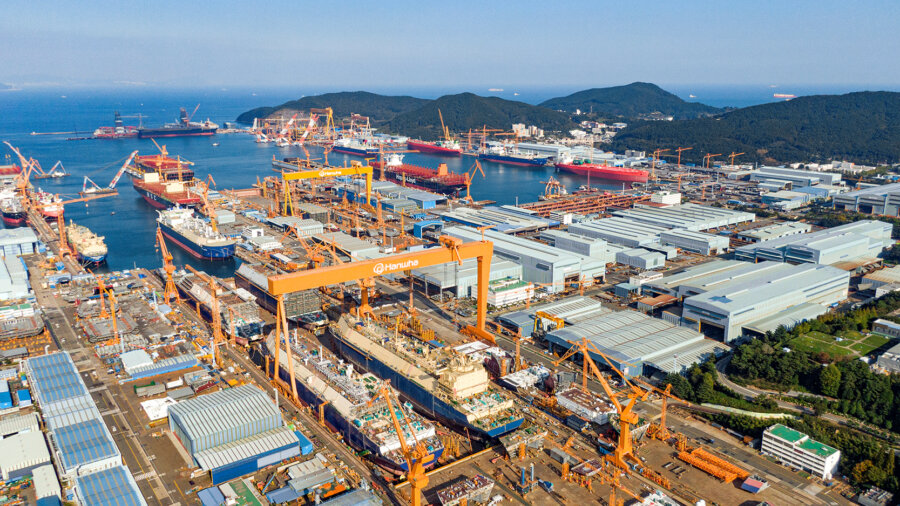
Ψήγματα ελπίδας για το αμερικανικό νηολόγιο με νοτιοκορεατική ώθηση
Στις 27 Ιουνίου, η ναυτιλιακή εταιρεία Hanwha Shipping, θυγατρική του νοτιοκορεατικού ομίλου Hanwha, προχώρησε σε μια σημαντική ανακοίνωση, που σηματοδοτεί την επέκταση της παρουσίας…
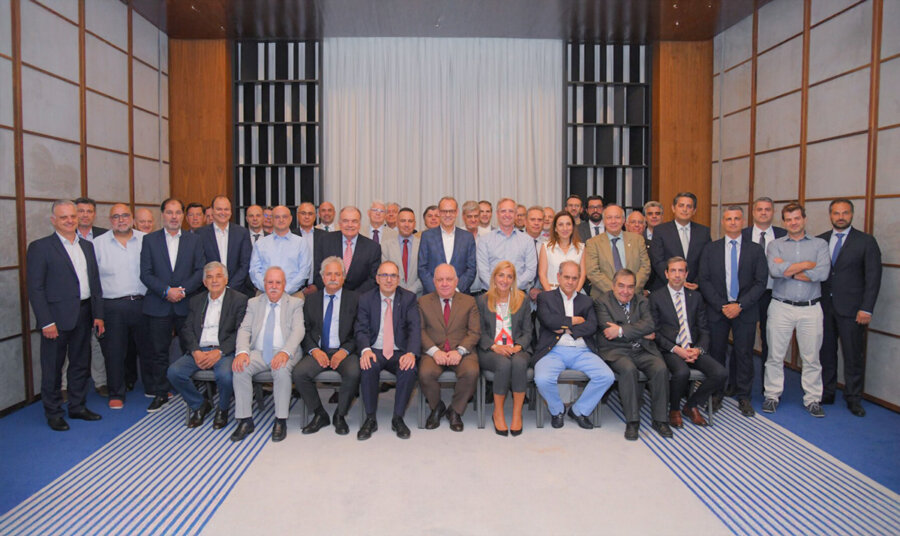
Όσα συζητήθηκαν στην 38η Συνάντηση της Ελληνικής Ναυτιλιακής Τεχνικής Επιτροπής του BV
Η Bureau Veritas Marine & Offshore (BV) πραγματοποίησε με επιτυχία την 38η συνάντηση της Ελληνικής Ναυτιλιακής Τεχνικής Επιτροπής στην Αθήνα στις 24 Ιουνίου, επιβεβαιώνοντας…

Συμμετοχή του ESN στο διάλογο για τη ναυτιλιακή βιομηχανική στρατηγική της ΕΕ της Επιτροπής Μεταφορών και Τουρισμού
Το European Shortsea Network, εκπροσωπούμενο από τον Πρόεδρο Χαράλαμπο Σημαντώνη, συμμετείχε στον Στρατηγικό Διάλογο υψηλού επιπέδου για τη Ναυτιλιακή Βιομηχανική Στρατηγική της ΕΕ (strategic…

Ιράν, OPEC+ και δασμοί οδηγούν σε πτώση το πετρέλαιο
Πτώση καταγράφουν οι διεθνείς τιμές του πετρελαίου, την Παρασκευή 4 Ιουλίου, στον απόηχο της δέσμευσης του Ιράν ότι θα τηρήσει τη Συνθήκη Μη Διάδοσης…
